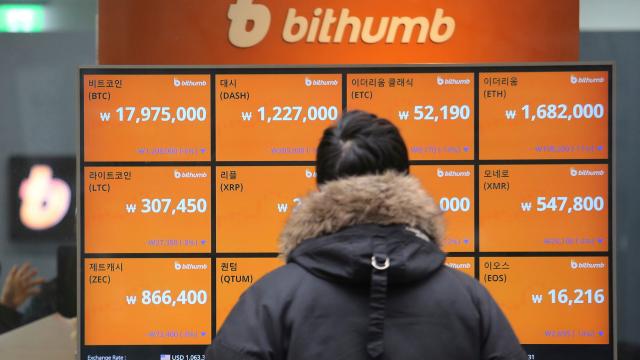Earlier this year, the New York Times profiled the class of nouveau riche Bitcoin millionaires who had gotten “hilariously rich” on booming cryptocurrency investments. Now that the market is flatlining (it’s now fluctuating in the low-to-mid $US6,000s), another New York Times profile is shedding light on how much speculators who bought in while it was surging towards the $US20k range have lost, and it’s not really very pretty.
Some choice sections:
Pete Roberts of Nottingham, England, was one of the many risk-takers who threw their savings into cryptocurrencies when prices were going through the roof last winter.
Now, eight months later, the $US23,000 he invested in several digital tokens is worth about $US4,000, and he is clearheaded about what happened.
“I got too caught up in the fear of missing out and trying to make a quick buck,” he said last week. “The losses have pretty much left me financially ruined.”
Yikes. In South Korea, where the Times noted the bitcoin boom saw major exchanges cash in by opening storefronts designed to make getting involved in the market more accessible, the losses seem to have been particularly egregious. One exchange, Coinone, had just one customer walk in during a mid-day period last week. The Times wrote:
Kim Hyon-jeong, a 45-year-old teacher and mother of one who lives on the outskirts of Seoul, said she put about 100 million won, or $US90,000, into cryptocurrencies last fall. She drew on savings, an insurance policy and a $US25,000 loan. Her investments are now down about 90 per cent.
“I thought that cryptocurrencies would be the one and only breakthrough for ordinary hardworking people like us,” she said. “I thought my family and I could escape hardship and live more comfortably, but it turned out to be the other way around.”
29-year-old Charleston, South Carolina man Charles Herman told the paper that he had bought in at around $US4,000. He’s managed to keep that total fairly steady by playing various cryptocurrency markets, but told the Times, “I guess I thought we were ‘sticking it to the man’ when I got on board. But I think ‘the man’ had already caught on and had an exit strategy.”
Jan 13 vs. Aug 20 pic.twitter.com/IXm1lu20je
— Joshua Davis (@karbonbased) August 20, 2018
The Times noted that “almost none” of the companies which solicited massive investments via an only loosely regulated type of financial vehicle called an initial coin offering have taken off, leaving their tokens “useless, except as speculative assets.” Yet it also noted that the speculative wave is far from over, with some seeing the price crashes as an opportunity to stock up in case prices rise again.
Call it the tale of two cryptos: Like any speculative frenzy, those who got in early cashed in big time, especially the so-called “whales” who were estimated to hold around 40 per cent of the market last year. But the supposedly transformative applications of the technology never materialised—it’s not replacing fiat money anytime soon—and a heck of a lot of other people got left holding the bill for the lucky few. For example, Bloomberg recently reported that Bitcoin offshoot Bitcoin Cash has plummeted from $US10.5 million in payments in March to $US3.7 million in May, while Bitcoin went from $US412 million in payments in September 2017 to $US60 million in May.
Of course, $US6,000 isn’t nothing, but it’s a 70 per cent plus crash from Bitcoin’s peak. (Ethereum isn’t doing so hot either at around $US275, down from a peak of over $US1,300 in January.) It’s easy to mock the investors who lost big time—at the end of the day the house always wins, baby, and it’s not like there was a scarcity of warnings. But it’s honestly more than a little depressing to watch the meat grinder at work. It’s been happening for years and certainly seems unlikely to stop anytime soon.
“The issue with bitcoin is the price is driven 100 per cent by market psychology,” DataTrek Research co-founder Nick Colas told NBC News. “It is still a new technology and in the early days of adoption, so there isn’t a lot aside from public confidence to underpin its value.”
As the Wall Street Journal wrote earlier this year, there’s ample historical precedent to consider, like the rise of private money in the early 1800s. Just keep in mind the next time you read about all the people getting rich quick off speculative crypto investments, the story about the big-time losses probably isn’t all that far behind.
